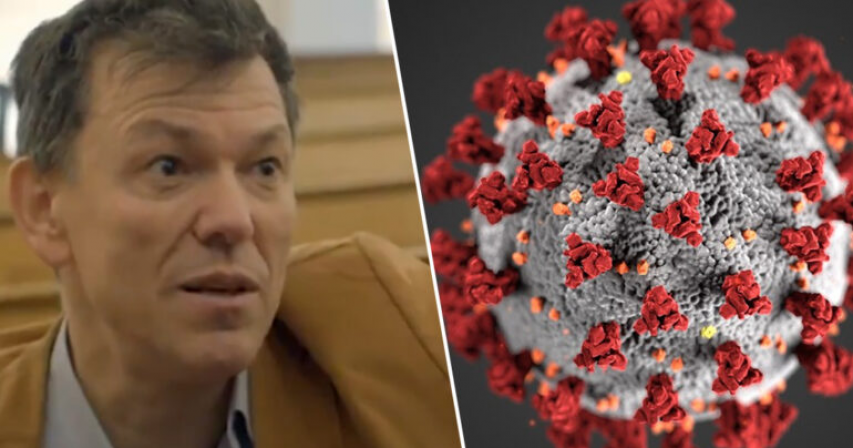One Person Social Distancing Can Prevent 59,000 Infections, Professor Explains
- 4 years ago

Millions of people around the world are being urged to stay inside and practice social distancing in a bid to protect others and tackle the coronavirus pandemic.
Despite this, over the weekend our newsfeeds were full of people ignoring the guidance given to us by scientists and public health experts; crowding markets, pubs and national parks, as though nothing has changed.
For those struggling – or refusing – to understand how their actions will put thousands of lives at risk, a professor and intensive care specialist has explained exactly why it’s so important to follow the guidance and stay inside.
You can watch Professor Hugh Montgomery’s explanation below:
“If you are irresponsible enough to think that you don’t mind if you get the flu, remember it’s not about you - it’s about everybody else.”
— Channel 4 Dispatches (@C4Dispatches) March 22, 2020
Intensive care specialist Professor Hugh Montgomery explains why this coronavirus is different from the ordinary flu. pic.twitter.com/h9sQorHQUv
Professor Montgomery started by summarising what would happen if he, or any person, got the flu. Speaking to Channel 4’s Dispatches, he said he would – on average – pass it on to 1.3 or 1.4 people ‘if there was such a division’.
If they then passed it on to another 1.4 people, by the time that’s happened 10 times Professor Montgomery would be responsible for 14 cases of flu. But, as we already know, COVID-19 is not like the flu and is ‘very, very infectious’.
So, he explained, every person who catches COVID-19 will on average pass it to three people. ‘Now that doesn’t sound like much of a difference, but if each of those three passes it to three, and that happens at 10 layers, I have been responsible for infecting 59,000 people,’ he said.
One person practising social distancing guidelines therefore has the ability to prevent 59,000 COVID-19 infections, all by staying inside as much as possible and avoiding social gatherings.
Professor Montgomery went on to explain that, if people don’t follow these social distancing guidelines and continue to go outside unnecessarily, we can easily ‘overwhelm’ the system.
He said:
THIS IS THE ISSUE. IF WE’VE GOT A LIMITED RESOURCE, WHICH WE HAVE – A LIMITED NUMBER OF VENTILATORS, A LIMITED NUMBER OF DOCTORS, A LIMITED NUMBER OF NURSES – IF WE OVERWHELM THAT, WE CAN’T PROVIDE THAT SERVICE OF CARING FOR THESE PEOPLE PROPERLY.
I’M NOT GOING TO PLAY IT DOWN. IT’S GOING TO BE UGLY, IT’S GOING TO BE HORRIBLE FOR A LARGE NUMBER OF PEOPLE, BUT IT WILL BE A SMALL NUMBER OF PEOPLE WHO GET PROPERLY SICK AND A SMALLER PERCENTAGE OF THOSE AGAIN THAT NEED TO COME TO AN INTENSIVE CARE UNIT. AND WE CAN SAVE THE LIVES OF A LARGE NUMBER OF THOSE PEOPLE TOO.
To be able to do that though, Professor Montgomery said we need to ensure we have ‘enough beds, and enough staff, and enough kit’ for the people who do fall ill – something we won’t have if people continue to go outside.
Professor Montgomery then summed it up perfectly by saying: ‘If you are irresponsible enough to think that you don’t mind if you get the flu, remember it’s not about you. It’s about everybody else.’
According to the latest figures by Johns Hopkins University, there have been 350,536 confirmed cases of COVID-19 and 15,328 deaths worldwide, so it’s never been more important to listen to the advice given to us and do our bit to protect others.
Our thoughts are with all those affected by coronavirus and the families of those who have lost their lives.
Comments